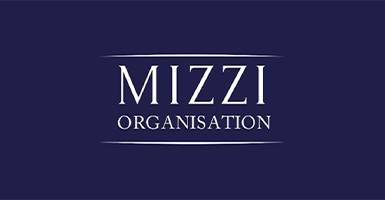Franklin Templeton’s Notes from the Trading Desk offers a weekly overview of what their professional traders and analysts are watching in the markets. The European desk is manned by eight professionals based in Edinburgh, Scotland, with an average of 15 years of experience whose job it is to monitor the markets around the world. Their views are theirs alone and are not intended to be construed as investment advice.
The Digest
Last Monday saw a turbulent start to the week for equity markets, with sharp declines globally amid concerns over the Evergrande situation in China and nerves over central bank policy globally. However, throughout the week investors recovered their composure and volatility eased.
Central bank policy meetings from the US Federal Reserve (Fed), Bank of England (BoE) and Norway’s Norges Bank were in focus, and outcomes were largely as expected. In Asia, the People’s Bank of China (PBOC) took steps to boost liquidity in its financial system, which helped settle nerves. On the week, market moves were muted, with the MSCI World Index up 0.2%; the STOXX Europe 600 Index up 0.3%; the S&P 500 Index up 0.5% and the MSCI Asia Pacific Index down1.2%.
Central Bank Policy in Focus
As expected, central bank policy meetings were in focus last week, particularly the Fed and Norges Bank. The narrative from each central bank was largely in line with market expectations and for now, equity markets seem to be reconciled with the Fed’s carefully choreographed move towards tapering its COVID-19 pandemic support.
Fed decision: At last Wednesday’s meeting, the Fed indicated that a reduction in asset purchases would likely occur soon, with Chair Jerome Powell suggesting the November meeting looks likely for an official announcement. The Fed did acknowledge that COVID-19 was impacting the momentum of the economic recovery and growth, but at this stage this does not seem enough to avert tapering. Forecasts for inflation were raised in the medium term, suggesting not all of the recent inflationary pressures are transitory.
On the Fed’s “dot plot”, which illustrates the Fed’s projected path of interest rates, the “median dot” was pulled forward to 2022 from 2023, with a strong consensus (all but one of the voting Fed members) having rate hike lift-off in 2023. The 2022 projections were evenly divided, with half the committee remaining at the zero lower bound while the other half projected one or two hikes. We also saw the 2024 dot plot, which forecast another three hikes for the median path.
Importantly, Powell continued to drive the point home that “tapering” is very different from “hiking” and continued to state it is not even close to lift-off on interest rates.
US equity markets were steady last Wednesday when this news came out, although bond markets saw a more pronounced reaction, with the US 10-year Treasury yield widening to 1.45% (from 1.35% at start of the week).
BoE decision: The BoE committee members voted unanimously last Thursday to keep interest rates unchanged at 0.1%. The committee voted 7-2 to keep the bond-buying target unchanged. The Asset Purchasing Facility was kept steady at £895 billion, as expected. The BoE advised that it will be watching for data on the labour market, job slack and any pay pressures. The minutes emphasised the key to the eventual timing of the first hike will be on how the labour market responds to the end of the furlough scheme. The UK central bank also noted that UK inflation could remain above 4% into the second quarter of next year. The market brought forward expectations for a 15 basis point (bp) interest rate hike from May 2022 to March 2022.
Norges Bank: Last week also saw the first European central bank raise interest rates post the COVID-19 crisis. In Norway, Norges Bank raised interest rates by 25 bps as expected (it had been discussing this hike since March), stating the case had “strengthened” for “modest tightening of monetary policy” in coming years.
German Election: Close Result
Sunday’s German election was a close-run race as expected, with the final results even tighter than polls suggested. The centre left Social Democratic Party (SPD) won the largest share of the vote with 25.7%, the Christian Democratic Union of Germany (CDU) 24.1%, Greens 14.8% and FDP 11.5%. With the SPD and CDU ruling out forming another coalition together, it seems the most likely outcome is either the so-called “traffic light” coalition of SPD, Greens and the liberal Free Democratic Party (FDP), or the “Jamaica coalition” of CDU, Greens and FDP. This morning, SPD leader Olaf Scholz said that “voters signalled SPD, Greens, FDP should govern”.
In this context, the Greens and the FDP are being described as “king-makers” and will have to respond to pitches from both the CDU and the SPD. The FDP leader has proposed talks between his party and the Greens before engaging with the larger parties.
Coalition politics is very much the norm in Germany, and we should not expect a new government to be formed quickly; recall it took 171 days to form a government in 2017.
The initial market reaction has been positive, with the German DAX Index up 1% early in the session, partly because the result rules out the coalition of SPD-Greens-Left Party securing a majority. Investors had been concerned about the direction of a government including the anti-European Union, anti-NATO Left Party.
Sentiment Remains Cautious
It was encouraging to see equity markets stabilise last week, but as we move towards the fourth quarter, it does feel like investor sentiment is somewhat brittle. A number of headwinds such as the Evergrande situation in China/Chinese regulation, increasingly hawkish central banks, fears over peak growth, supply chain/inflationary pressures etc. With that, last week we saw equity funds record their first outflows since the beginning of the year. In addition, the CNN Fear & Greed Index remains firmly in a FEAR reading.
Investors also point to the fact that US corporate buybacks will wind down as we enter earnings season, providing another headwind.
However, we did see retail investors stepping in and “buying the dip” last week. This remains an important market dynamic to watch.
The Week in Review
Europe
European markets: Last week was an interesting week for European equities. While the STOXX Europe 600 Index closed the week up just 0.3%, there have been a number of moving parts. A few global concerns alleviated as the week went on. As such, the V2X (volatility index for the eurozone) spiked 18% at the open on Monday 20 September, but retraced its steps to close the week down 7%. Concerns around Evergrande’s potential default on interest payments spooked investors at the start of the week, with the STOXX Europe 600 Index closing Monday down 1.7%. Fears over peak growth, general central bank hawkishness, and an energy price crisis added to the nervousness at the start of the week. Markets were also focused on the Federal Open Market Committee (FOMC) and BoE announcements last week as well as the 26 September German election. (more below).
In terms of regional indices, the UK FTSE 100 Index and the Spanish IBEX outperformed, both up 1.3%, helped by strength in travel names. The German DAX lagged, but still finished up 0.3% last week. The US relaxed travel restrictions, giving the travel and leisure sector a shot in the arm. The sector in Europe closed the week higher as well. Aviation-related stocks strengthened.
Goldman Sachs’ COVID-19 recovery basket was stronger, closing the week up 5.2%, with the “Stay at Home” basket which down 0.4%. The oil and gas sector was likewise higher last week amid higher oil prices, but retail stocks struggled on supply fears.
United States
US equity markets finished higher last week, but it wasn’t all smooth sailing. The CBOE Volatility Index (VIX) spiked as much at 38% last Monday vs. the previous Friday’s close, as concerns of a default for Evergrande weighed on market sentiment. The S&P 500 Index closed down 1.7% on 20 September, its biggest selloff since May. US equities then rallied through the rest of the week as sentiment shifted, with the VIX actually closing the week down 15%.
The S&P 500 Index recovered from breaking through its 50-day moving average (a key technical indicator) and has now traded above its 200-day moving average for 314 trading days. However, equity exchange-traded funds (ETF) saw outflows, and the “buy the dip” mantra was challenged somewhat as the following day. Outside of Evergrande and central bank announcements (as noted), the US debt ceiling remained an area of concern, with the potential for a government shutdown on 1 October looming.
In terms of sectors, energy stocks outperformed in the United States last week as West Texas Intermediate crude oil rallied 3%, its fifth straight week of gains, on signs that the oil market is tightening due to a global energy crunch. Financials also did better last week as yields moved higher due to more hawkish tones from the central banks. Defensive stocks underperformed, with consumer staples, health care, communication services and utilities all finishing lower. Real estate investment trusts (REITs) also lagged on the week, following concerns of readthrough from China’s Evergrande woes.
In terms of macroeconomic data, September’s manufacturing Purchasing Managers’ Index (PMI) came in at 60.5, slightly lower than expected. The pace of improvement slowed from 61.1 in the prior report. Export orders grew at their fastest pace in four months, despite production expansion slowing to its lowest rate in 11 months on supply constraints and materials shortages. Total workforce grew at a faster pace vs the August report, whilst there was a significant rise in input costs.
Asia and Pacific
Asian equities were in focus last week globally, as markets were watching carefully for any further fallout from Evergrande’s potential default. The MSCI Asia Pacific Index underperformed the other regions, down 1.2%. The Shanghai Composite outperformed in the region, but still finished flat, following a liquidity injection from the PBOC. The Hang Seng Index lagged, down 2.9%, driven by the Evergrande fallout.
We saw reports that the major banks had been informed they would not receive interest payments due on Evergrande’s loans, but the property developer is still to pay US bond holders US$84 million in interest payments. The company is likely to use the 30-day grace period to make these payments, which other firms have used in the past. As last week progressed, there were hopes that the company could restructure its US$300 billion of liabilities. The burden of any default is expected to primarily affect the Chinese banking sector, with reports suggesting that officials are not ruling out allowing the company to default.
The PBOC injected more liquidity into the system via reverse repos, the biggest injection since February. The central bank added CNY100 billion on Saturday in an attempt to ease the financial stress ahead of a crucial week for Evergrande. The PBOC said the injection of cash was made to support markets more generally. Meanwhile, the Bank of Japan’s announcement on interest rates was as expected, leaving rates unchanged whilst confirming commitment to asset purchases. Guidance was maintained and current easing would continue until inflation stabilised at the 2% target.
In Japanese politics, it was reported that there will be a decision on who becomes Prime Minister on 4 October. The candidate is likely to be the winner of the Liberal Democratic Party (LDP) presidential election this Wednesday (29 September) and will become current Prime Minister Yoshihide Suga’s successor. A general election is then likely to be held in November. Polls show very little between the two favourites, Fumio Kishida and Taro Kono. It was also reported that nearly a quarter of lawmakers are undecided, so the vote could go either way.
In terms of Japanese macroeconomic data, manufacturing PMIs softened, falling to 51.2 in September from 52.7 in August. Output, new orders and exports all moved into contractionary territory. Near-term outlook looks constrained by COVID-19 measures, although that is expected to change as vaccinations rise. The non-manufacturing PMI bounced back to 47.4 from 42.9 in August, reflecting slower declines in output and demand.
The Week Ahead
Monday 27 September:
- Eurozone money supply
- US durable goods orders
Tuesday 28 September:
- UK nationwide house price
- US wholesale inventories
- US consumer confidence
Wednesday 29 September:
- UK mortgage approvals
- Spain Consumer Price Index (CPI)
- US mortgage applications
Thursday 30 September:
- UK gross domestic product (GDP)
- France CPI
- Spain retail sales
- Germany unemployment
- US initial jobless claims
- US GDP
Friday 1 October:
- UK manufacturing PMI
- Eurozone/Spain/Italy/France/Germany manufacturing PMI
- US personal income and spending
- US manufacturing PMI
- US construction spending
- US ISM manufacturing
Franklin Templeton Key risks & Disclaimers:
What Are the Risks?
All investments involve risk, including possible loss of principal. The value of investments can go down as well as up, and investors may not get back the full amount invested. Stock prices fluctuate, sometimes rapidly and dramatically, due to factors affecting individual companies, particular industries or sectors, or general market conditions. Bond prices generally move in the opposite direction of interest rates. Thus, as prices of bonds in an investment portfolio adjust to a rise in interest rates, the value of the portfolio may decline. Investments in foreign securities involve special risks including currency fluctuations, economic instability and political developments. Investments in developing markets involve heightened risks related to the same factors, in addition to those associated with their relatively small size and lesser liquidity. Past performance is not an indicator or guarantee of future performance.
This article reflects the analysis and opinions of Franklin Templeton’s European Trading Desk as of 27th September 2021, and may vary from the analysis and opinions of other investment teams, platforms, portfolio managers or strategies at Franklin Templeton. Because market and economic conditions are often subject to rapid change, the analysis and opinions provided may change without notice. An assessment of a particular country, market, region, security, investment or strategy is not intended as an investment recommendation, nor does it constitute investment advice. Statements of fact are from sources considered reliable, but no representation or warranty is made as to their completeness or accuracy. This article does not provide a complete analysis of every material fact regarding any country, region, market, industry or security. Nothing in this document may be relied upon as investment advice or an investment recommendation. The companies named herein are used solely for illustrative purposes; any investment may or may not be currently held by any portfolio advised by Franklin Templeton. Data from third-party sources may have been used in the preparation of this material and Franklin Templeton (“FT”) has not independently verified, validated or audited such data. FT accepts no liability whatsoever for any loss arising from use of this information and reliance upon the comments, opinions and analyses in the material is at the sole discretion of the user. Products, services and information may not be available in all jurisdictions and are offered by FT affiliates and/or their distributors as local laws and regulations permit. Please consult your own professional adviser for further information on availability of products and services in your jurisdiction.
Issued by Franklin Templeton Investment Management Limited (FTIML) Registered office: Cannon Place, 78 Cannon Street, London EC4N 6HL. FTIML is authorised and regulated by the Financial Conduct Authority.
MeDirect Disclaimers:
This information has been accurately reproduced, as received from Franklin Templeton Investment Management Limited (FTIML). No information has been omitted which would render the reproduced information inaccurate or misleading. This information is being distributed by MeDirect Bank (Malta) plc to its customers. The information contained in this document is for general information purposes only and is not intended to provide legal or other professional advice nor does it commit MeDirect Bank (Malta) plc to any obligation whatsoever. The information available in this document is not intended to be a suggestion, recommendation or solicitation to buy, hold or sell, any securities and is not guaranteed as to accuracy or completeness.
The financial instruments discussed in the document may not be suitable for all investors and investors must make their own informed decisions and seek their own advice regarding the appropriateness of investing in financial instruments or implementing strategies discussed herein.
If you invest in this product you may lose some or all of the money you invest. The value of your investment may go down as well as up. A commission or sales fee may be charged at the time of the initial purchase for an investment. Any income you get from this investment may go down as well as up. This product may be affected by changes in currency exchange rate movements thereby affecting your investment return therefrom. The performance figures quoted refer to the past and past performance is not a guarantee of future performance or a reliable guide to future performance. Any decision to invest in a mutual fund should always be based upon the details contained in the Prospectus and Key Investor Information Document (KIID), which may be obtained from MeDirect Bank (Malta) plc.




